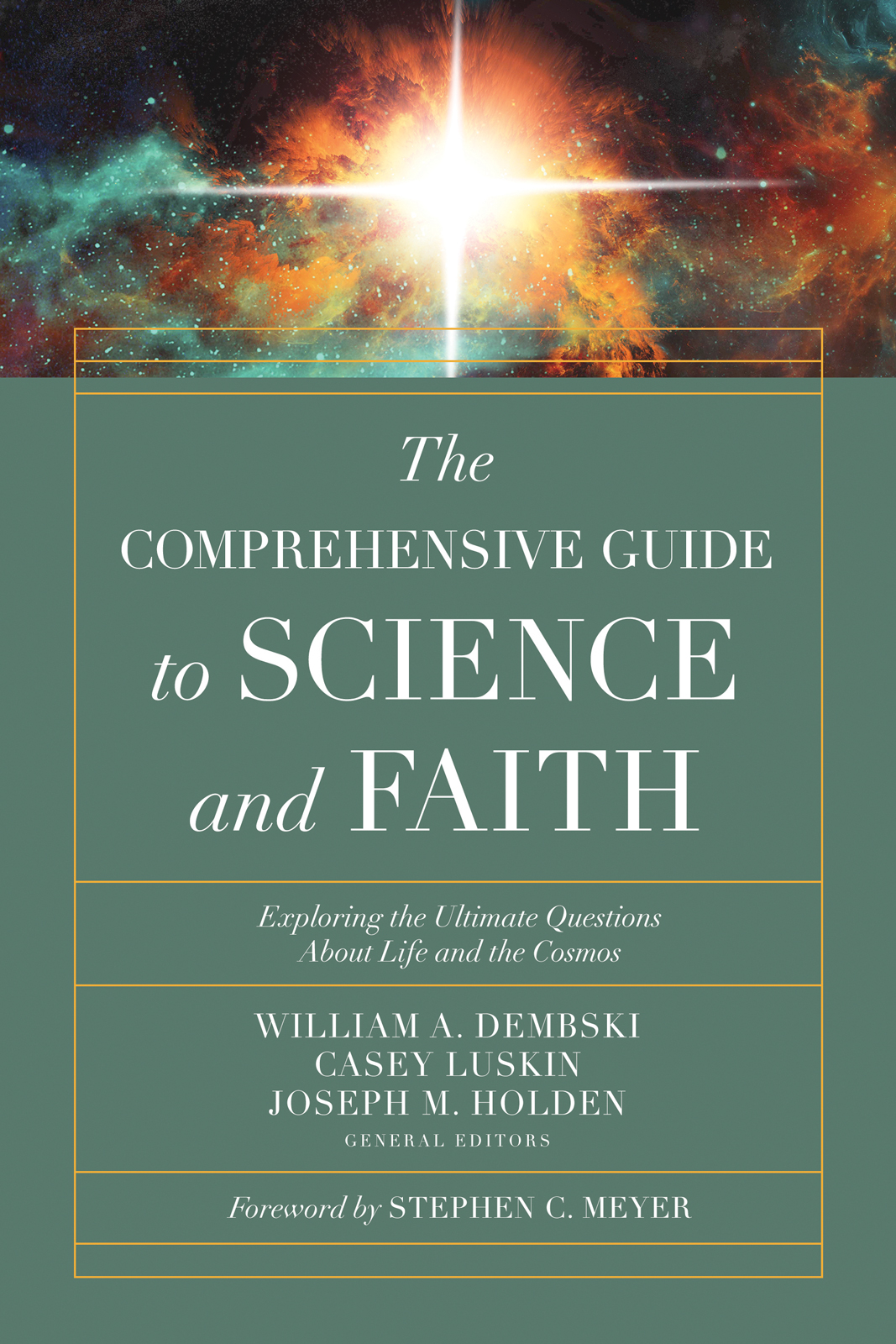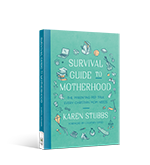
Sign Up for Updates
Connect
TOPICS
- Latest Blog
- Fiction
- Inspirational/Devotional
- Men's Christian Living
- Prophecy
- Women's Christian Living
- View All
ARCHIVES
Science that Supports Your Christian Faith
Posted on Sep 07, 2021 Topic : Men's Christian Living, Prophecy, Women's Christian Living
Posted by : William A. Dembski, Casey Luskin, and Joseph M. Holden

Stephen Hawking argued in his book Brief Answers to the Big Questions that “the universe was spontaneously created out of nothing, according to the laws of science.” Consequently, for him, that meant “the simplest explanation is that there is no God.”
This perception of a conflict between theistic belief and the clear implications of modern science has percolated into the popular consciousness. Recent polling data indicate that in North America and Europe, the perceived message of science has played an outsized role in the loss of belief in God. In one poll, more than two-thirds of self-described atheists and one-third of self- described agnostics affirm that “the findings of science make the existence of God less probable.”
Not all scientists accept the idea that the findings of science and faith in God conflict. Instead, some religious scientists believe that science and faith cannot conflict. They subscribe to an idea known as compartmentalism, which holds that science and religion describe completely different realities. Proponents often support this view by quoting an aphorism used by Galileo that affirms the Bible teaches “how one goes to heaven, not how the heavens go.” Others subscribed to a closely related idea called complementarity. Proponents of this view hold that science and religion may sometimes describe the same realities; however, they do so in complementary but ultimately incompatible language.
Proponents of both views deny that science contradicts religious belief, but they do so by portraying science and religion as such totally distinct enterprises that their claims could not possibly intersect in any significant way. This assumption seems to insulate theistic belief from scientific refutation, but it also denies the possibility that scientific evidence could offer any support for theistic belief. Thus, until recently, few scientists have thought—as Newton, Boyle, Kepler and the other founders of early modern science did—that the testimony of nature actually supports important tenets of a theistic or Judeo-Christian worldview.
The authors of this volume deny that the evidence of the natural world, rightly understood, conflicts with theistic or Judeo-Christian belief. Many of them think that certain discoveries of modern science—in particular, discoveries concerning biological and cosmological origins or discoveries about the nature of the human mind—may actually support theistic or Judeo-Christian belief. Here, in this book, they have helped to develop another understanding of the relationship between theistic belief and science—one that I call “qualified agreement.”
This idea maintains that, when correctly interpreted, scientific evidence and theistic belief can and do support each other. While accepting some disagreement about details as inevitable given the limits of human knowledge, advocates of this model affirm a broad agreement between the testimony of the natural world and the propositional content of Judeo-Christian theism—between science and religion so defined. Though advocates of qualified agreement acknowledge that much scientific research and theorizing does address metaphysically and religiously neutral topics, we do not agree that all scientific theories have this characteristic.
Instead, the qualified-agreement model, like the conflict model, asserts that some scientific theories do have larger worldview or metaphysical implications. Nevertheless, unlike the conflict model, proponents of qualified agreement deny that the best or most truthful theories ultimately contradict a theistic or Judeo-Christian worldview. Instead, they view theological and scientific truth as issuing from the same transcendent and rational source—namely, God. Advocates of qualified agreement anticipate, therefore, that these two domains of knowledge, when rightly understood and interpreted, will come increasingly into agreement as advances in science and theology eliminate real points of conflict that sometimes have existed.
Many of the founders of early modern science held this view of the relationship between science and Judeo-Christian religion. Indeed, from the late-middle ages through the scientific revolution (roughly 1250–1750), scientists often affirmed the agreement between the book of nature and the book of Scripture, both of which were understood to be mutually reinforcing revelations of the same God. This present volume includes many authors who have helped to revive this perspective and includes entries from them that will help you to consider it as well.
In the Bible, in the book of Romans, St. Paul not only affirms that God created the world, but he also argues that the signs of God’s handiwork are “clearly perceived” in “the things that have been made.” This collection of essays considers whether scientific evidence supports this biblical claim. The authors of this volume—who include a diverse group of scientists, scholars, and theologians—also consider many other relevant questions about the relationship between scientific knowledge and theistic belief (or even biblical teaching). I encourage you to read their entries and arguments. If you do, I think you will find yourself better equipped to dialogue with your friends, family, and colleagues about the relationship between science and faith and to explain how scientific evidence from nature and insights from Scripture can provide mutually reinforcing ways of knowing about our universe and its creator.


